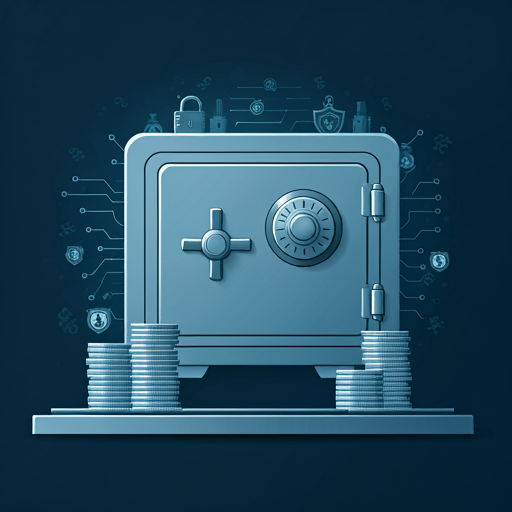Introduction to Cybersecurity in Finance
The Importance of Cybersecurity
In finance, cybersecurity is crucial for protecting sensitive data. He understands that breaches can lead to significant financial losses. Cyber threats are evolving rapidly. This is a serious concern. Financial institutions must implement robust security measures. A proactive approach is essential. He believes that awareness is key. Knowledge can prevent many attacks.
Overview of Financial Cyber Threqts
Financial institutions face numerous cyber threats today. He recognizes that phishing schemes are prevalent. These attacks often exploit human error. Awareness can mitigate risks. Additionally, ransomware poses a significant challenge. It can cripple operations quickly. He notes that insider threats are also concerning. Trust is essential in finance.
Understanding Cryptocurrency Security
How Cryptocurrencies Work
Cryptocurrencies operate on decentralized networks using blockchain technology. He understands that this ensures transparency and security. Each transaction is recorded in a public ledger. This makes fraud difficult. Additionally, cryptographic techniques protect user identities. Security is paramount in this space. He believes that understanding these mechanisms is essential. Knowledge empowers users to make informed decisions.
Common Vulnerabilities in Cryptocurrency
Cryptocurrencies face several vulnerabilities that can be exploited. He notes that smart contract bugs are common. These flaws can lead to significant financial losses. Additionally, exchange hacks frequently occur. Security measures are often inadequate. He emphasizes the need for robust protocols. Awareness can prevent many issues. Knowledge is power in this domain.
Types of Cyber Threats in Finance
Phishing Attacks
Phishing attacks are a significant threat in finance. They often involve deceptive emails or messages. These communications aim to steal sensitive information. He highlights that users must remain vigilant. Attackers frequently impersonate legitimate organizations. This tactic can lead to severe financial consequences. Awareness is crucial for prevention. Knowledge can protect valuable assets.
Ransomware and Malware
Ransomware and malware pose serious risks in finance. These malicious programs can encrypt critical data. He notes that this often leads to hefty ransoms. Organizations must implement strong security measures. Prevention is more effective than recovery. He emphasizes the importance of regular backups. Awareness can significantly reduce risks. Knowledge is essential for protection.
Best Practices for Safeguarding Assets
Using Strong Passwords and Two-Factor Authentication
Using strong passwords is essential for financial security. He advises creating complex combinations of letters, numbers, and symbols. This practice significantly reduces unauthorized access. Additionally, two-factor authentication adds an extra layer of protection. It requires a second verification step. He believes this is crucial for safeguarding assets. Awareness of these methods is vital. Knowledge can prevent many breaches.
Regular Software Updates and Security Patches
Regular software updates are crucial for security measures. He understands that outdated software can be vulnerable. Security patches address known vulnerabilities effectively . This practice helps prevent potential breaches. He emphasizes the importance of timely updates. Staying current is essential for protection. Awareness can significantly enhance security measures. Knowledge is a powerful tool.
Secure Storage Solutions for Cryptocurrency
Hot Wallets vs. Cold Wallets
Hot wallets provide convenient access to cryptocurrencies. He jotes that they are connected to the internet. This connectivity increases exposure to cyber threats. In contrast, cold wallets are offline storage solutions. They offer enhanced security against hacking attempts. He believes cold wallets are safer for long-term holdings. Understanding these options is essential for investors. Knowledge can guide better storage decisions.
Hardware Wallets: Pros and Cons
Hardware wallets offer several advantages for cryptocurrency storage. They provide robust security against online threats. Additionally, they are user-friendly for transactions. However, there are some drawbacks to consider.
Pros:
Cons:
He believes understanding these factors is crucial. Knowledge can enhance investment strategies.
Regulatory Framework and Compliance
Understanding Financial Regulations
Understanding financial regulations is essential for compliance. He recognizes that these rules protect investors and markets. Key regulations include anti-money laundering (AML) and know your customer (KYC) policies.
Key Regulations:
He believes adherence to these regulations is crucial. Non-compliance can lead to severe penalties. Awareness fosters a secure financial environment. Knowledge is vital for informed decision-making.
Compliance Best Practices for Cryptocurrency Businesses
Compliance best practices are vital for cryptocurrency businesses. He emphasizes the importance of implementing robust AML and KYC procedures. Regular audits can identify potential compliance gaps.
Best Practices:
He believes training staff is essential. Knowledgeable employees reduce compliance risks. Awareness fosters a culture of compliance. This is crucial for long-term success.
The Role of Blockchain in Cybersecurity
How Blockchain Enhances Security
Blockchain enhances security through decentralization and transparency. He notes that data is stored across multiple nodes. This structure makes unauthorized alterations difficult. Additionally, cryptographic techniques protect transaction integrity. He believes this reduces fraud risks significantly. Awareness of these benefits is essential. Knowledge can improve security measures effectively.
Challenges and Limitations of Blockchain Security
Blockchain security faces several challenges and limitations. He recognizes that scalability issues can hinder performance. As more transactions occur, speed may decrease. Additionally, smart contract vulnerabilities can be exploited. He believes thorough testing is essential. Awareness of these risks is crucial for users. Knowledge can enhance security practices effectively.
Future Trends in Cybersecurity for Finance
Emerging Technologies and Their Impact
Emerging technologies significantly influence cybersecurity in finance. He notes that artificial intelligence enhances threat detection. This capability allows for quicker responses to incidents. Additionally, blockchain technology improves data integrity. It reduces the risk of fraud effectively. He believes these advancements are crucial for security. Awareness of these trends is essential. Knowledge can drive better security strategies.
Preparing for Future Cyber Threats
Preparing for future cyber threats is essential for financial institutions. He emphasizes the importance of continuous risk assessments. Regularly updating security protocols is crucial.
Key Strategies:
He believes proactive measures can mitigate risks. Awareness is vital for effective preparation. Knowledge empowers organizations to respond swiftly.

Leave a Reply